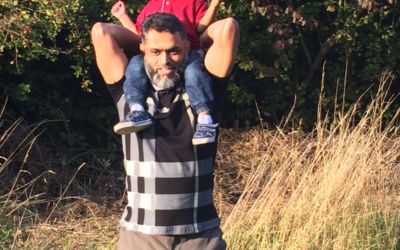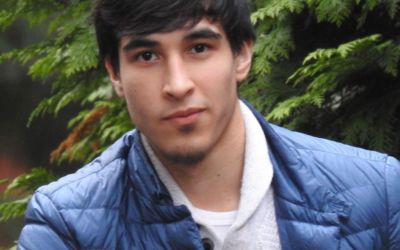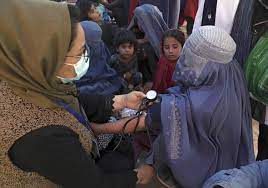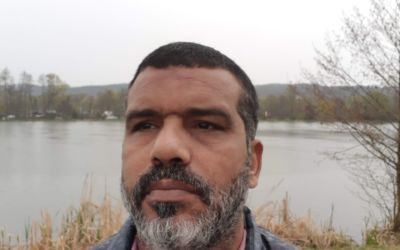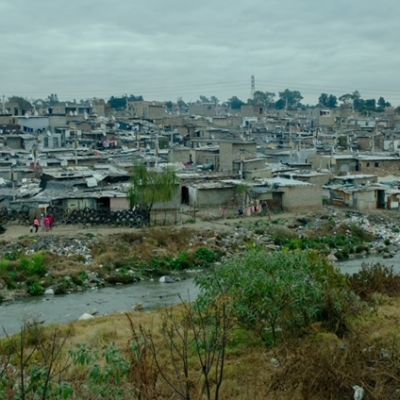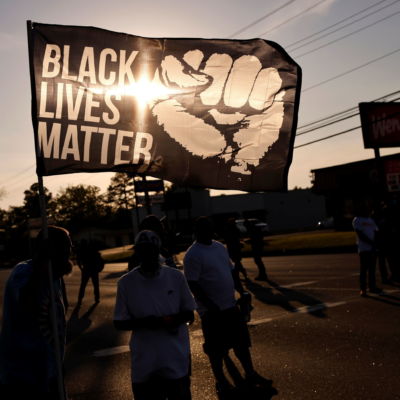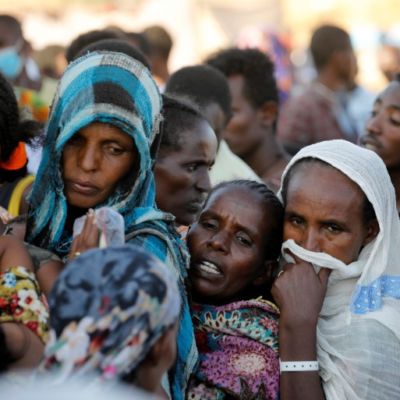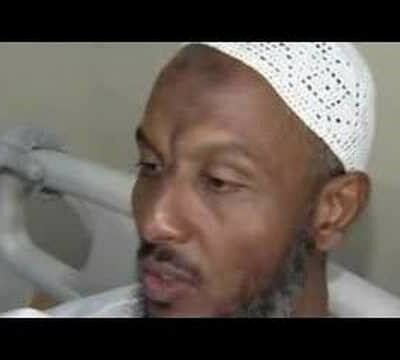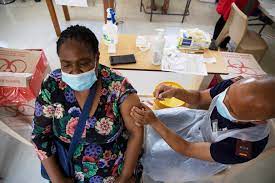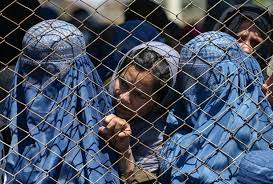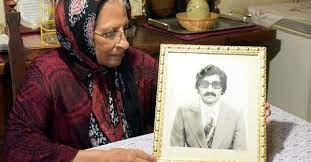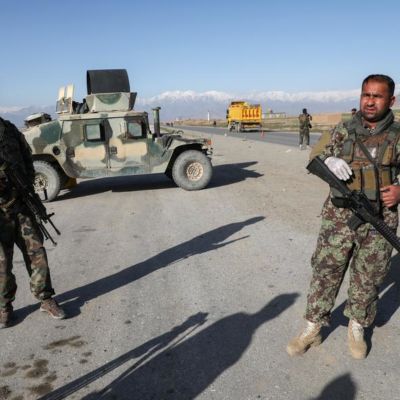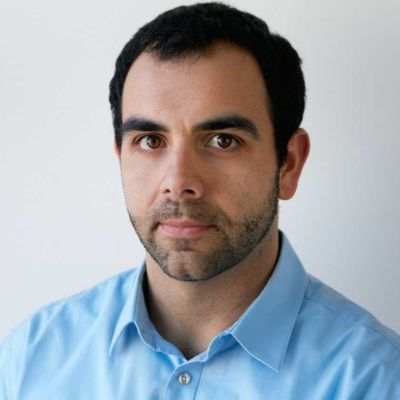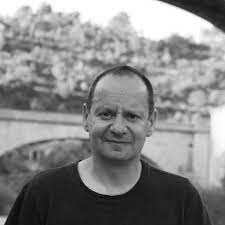‘I was taken to an open field’: Police brutality in South Africa
![Alexandra, Johannesburg, July 2020. [Sune van Tonder/Al Jazeera]<br />](https://liberties.aljazeera.com/media/2021/03/1617086861.jpeg)
Alexandra, Johannesburg, July 2020. [Sune van Tonder/Al Jazeera]
Johannesburg, South Africa –Alexandra, a suburb of Johannesburg, sits cheek by jowl with Sandton, the city’s rich and glitzy business district. The contrast cannot be greater. Whereas Sandton ‘s skyscapers are perched on the richest square mile in Africa, Alexandra is one of the poorest townships in South Africa. Alexandra was the site of one of the most publicised incidents of brutality during the current coronavirus lockdown in South Africa, the brutal killing of Collins Khosa.
But Khosa was just one of many victims of police brutality in South Africa over recent years. The brutal death of George Floyd on 25 May has thrust police brutality into the spotlight worldwide. But the number of brutal incidents in South Africa outnumbers such cases in the US. South African police officers are responsible for the deaths of civilians at almost twice the rate of police officers in the US.
Police brutality in South Africa has become a regular feature of police behavior in South Africa both before and during the coronavirus lockdown. Since 2017 rape by police officers in South Africa has increased by 44% and torture by 24%. And of the 5829 complaints that were brought against SAPS to the Independent Police Investigative Directorate (IPID) 69.9% of cases were assault and torture related.
According to Reagen Allen, Western Cape spokesperson for community policing, the increase in police brutality over the past years and over the lockdown period speaks to “much greater and ongoing problems within the safety sector.” He believes police brutality is a symptom of “a broken system”.
But police leadership deny the problem. Police Minister Bheki Cele caused an outcry when he stated in June: “In South Africa there is no police brutality.” He spoke of a “campaign” painting police officers in a negative light.
To some the heavy-handed approach of the police resembles apartheid policing. South Africa has a long history of state violence of which police brutality is but one form. According to political and social commentator Eusebius McKaiser an unjust killing can reveal “all the hidden scars of a nation.”
During apartheid police violence was overwhelmingly committed by white policemen against black victims. When apartheid came to a formal end in 1994 this changed. As Edwin Makwati, researcher at the Legal Resources Centre (LRC) says “one of the peculiar aspects of police brutality in South Africa is that the violence is inflicted by black policemen on black victims”.

Alexandra, Johannesburg [Sune van Tonder/Al Jazeera]
In spite of steps to reform and constrain the police such as the creation, in 1997, of the Independent Police Investigative Directorate (IPID), these steps have not deterred police officers from using excessive force.
Whereas the George Floyd killing in the US went hand-in-hand with the call for racial equality and the rise of the Black Lives Matter movement, the situation in South Africa is less clear. Unlike in the US the violence in South Africa is often not black-on-white violence but black-on-black violence.
As Eusebius McKaiser commented in the context of the much-publicised Nathaniel Julies case, a case involving the police killing a disabled child: “The country’s apartheid and colonial histories introduce more fine-grained racial classifications that drew an administrative and socio-political wedge between black people and so-called coloured people”.
The victims of police brutality are overwhelmingly from the poorer, more marginalised sections of society. Al Jazeera spoke to three victims and their families:
Collins Khosa
Police killing is so prevalent in South Africa that even serious incidents of brutality often go unreported by the media. The killing of Collins Khosa however caused an outcry by the media and the public.
I meet the Khosa family at their house on a late winter afternoon in June. Signs of Collins Khosa still linger in the small house made of brick and zinc. A certificate of good service by the bakery where Collins worked is displayed on the wall.
Collins Khosa was born near Tzaneen in Limpopo province. The family was very poor and moved to Johannesburg in 2002. Collins who was 26 at the time started working at a bakery in Alexandra to help supplement the income of the family. He dreamt of being a businessman and having his own company. They remember him as a cheerful, talkative and playful person. He liked to watch soccer and to go out with friends.
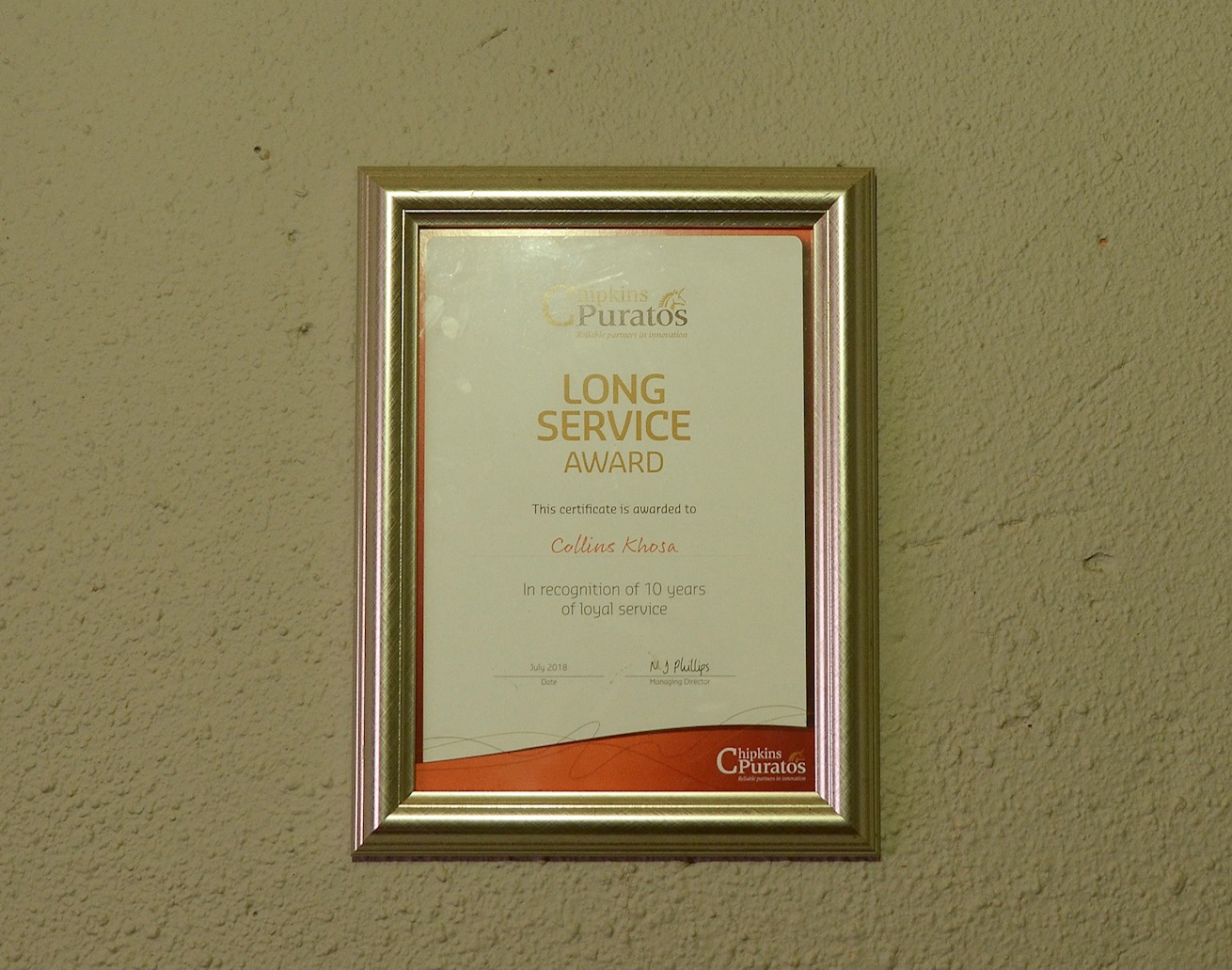
Nomsa Montsha, Collins’ fiancee and a cleaner at a shopping mall remembers Collins. She met Collins when she was 27, he was 38. When she first met him, she thought “this is the man I’ve been looking for.” She says: “He was very proud of me and very happy to go out with me.”
Collins and Nomsa planned to get married on 10 April, Good Friday. Since it was not possible to travel during the coronavirus lockdown to Limpopo, they postponed the wedding to December.
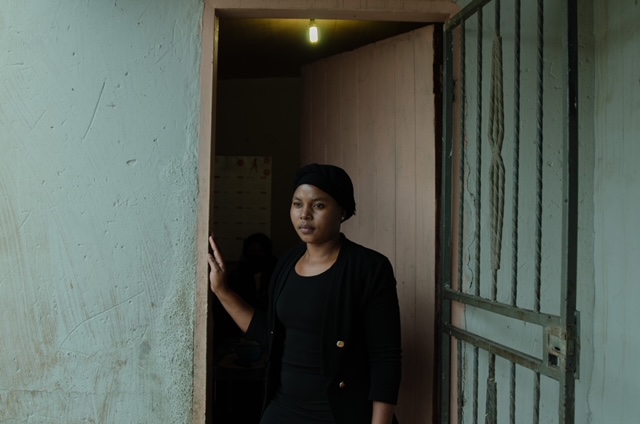
Nomsa Montsha at the Khosa’s house. [Sune van Tonder/Al Jazeera]
Collins was talkative and liked to make jokes. He liked to read, to watch soccer and to go out with friends. His favourite song was “Happy”, a song in the Tsonga language. He liked to dance to this song.
Good Friday
During the coronavirus lockdown police were patrolling the streets of Alexandra. The military was called in a few weeks later.
Thabiso Muvhango, Collins’ brother, says “We were aware of people being assaulted by the police in Alexandria. We saw videos on the internet.”
The family recounts the events of Good Friday, the day of Collins’ death. Collins was washing his car in the backyard and cleaning the yard. Thabiso, who works for a pharmaceutical company, recounts: “After he finished cleaning the car, we sat in the yard and had beers bought just before the lockdown.” The food was ready. I went to fetch him and he came to eat at about 5 pm.
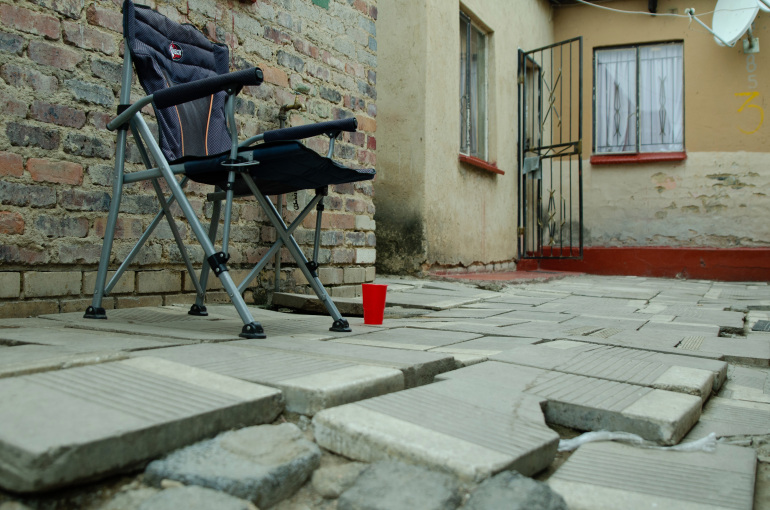
The chair and plastic cup Collins drank from. [Sune van Tonder/Al Jazeera]
A woman, our neighbour, came running and said “There are soldiers outside”. They were eating steak, chicken, pap and chakalaka. It was quite a feast. I went out to the gate and tried to close it. The soldier lady who was carrying a rifle saw the camp chair and said ‘have you been drinking?’ I said yes. She said “Ramapahosa. the president, said you guys must not drink’. I said “I never heard Ramaphosa saying that. What I know is that there has been a temporary ban on the sale of alcohol. Consumption can only be done inside someone’s premises.” She said: “No I need you to take all the beer you had.” I had one beer in the fridge. The soldier said: “You think you are smart.” Collins said “Can I at least wash my hands?” She said “Don’t waste my time you think you are smart.”
One woman had a rifle, one had a sjambok (a thick leather whip). The woman with the sjambok instructed us to go to the street. She slammed the gate against the car. “Do you think you are the only one who has a car?”
She said “We want to teach you a lesson today.” The called for backup. A convoy consisting of GMPD members and SANDF members arrived. The SANDF members disembarked from their cars. They went straight to the woman with the sjambok. We never got the names of the two women.
Thabiso said: “We never got the names or ranks of the two women. What good will it do to us to know their names? There is nothing we can do.”
“One SANDF man approached me and started assaulting me. I said ‘Whatever they told you is a lie. We were not drinking in the street’. He started slapping me. I said ‘If I contravened regulations you have to arrest me. You cannot assault me like this.’ GMPD said “We cannot arrest you. You haven’t contravened regulations.’”
“The same guy slapped me again. They poured beer over my private parts. Collins was being assaulted by some of the SANDF officers at the same time. They also poured beers over Collins. The SANDF officers demanded to see my wife and Collins’ wife. Collins was not talking so we didn’t know what exactly happened to him. They said that Nomsa and Yvonne, Collins’ sister, had an attitude. I said make sure they do not touch my wife, she is pregnant. We went inside the house and locked it.”
The policewoman with the sjambok instructed one of the SANDF members to kick down the door. The female SANDF then dragged Nomsa out of the house by her hair. The two female officers with the rifle and sjambok kept giving orders. No one challenged them. The one officer then started to assault Nomsa on her back many times with a sjambok in spite of the fact that she told them she was pregnant. “I was also assaulted on the face with the sjambok. I was really bleeding” says Nomsa.
Collins tried to reason with the two soldiers inside the house. There was a noise inside the house. And then silence. Then the woman with the sjambok said “Guys let’s go.”
We could see some blood on Collins’ teeth. Collins wanted Thabiso to take Nomsa to hospital. But Nomsa said she would be fine. Yvonne tried to stop Nomsa’s bleeding.
Nomsa remembers: “Collins was very weak. He kneeled down and was vomiting into the toilet. Collins wasn’t talking, just bumbling. He struggled to walk. I helped him and put him on the bed. He kept vomiting. I took a bucket and organised him on the floor so that he could sleep on the floor. Collins could not move. He squeezed my hand tight. I tried to wake him up. He did not wake up. He did not respond. Thabiso checked his pulse and could not feel a pulse. That’s when I knew something terrible has happened to him. I called an ambulance. The ambulance took a long time to come. At about 9pm he was certified dead.”
Two neighbours, Glenda Phaladi and Tebogo Mothabela took cellphone videos of the assault. They were abducted by the SANDF a few days later and dropped off next to the road in Linksfield, a nearby suburb. The cellphone videos were later deleted by the SANDF.
The next morning the media started calling the Khosas. They opened a case with the police.
According to Thabiso there has been no apology from the SANDF. He says the SANDF has not taken responsibility for what happened.
The Collins case was investigated by IPID. Eight witnesses told IPID that they witnessed the assault. IPID recommended disciplinary action to be taken against the JMPD officers for failing to intervene in Khosa’s assault.
Mahdi Aden
The 31 year-old Mahdi Aden is one of many Somalians who came to South Africa with the hope of better life. In 2010, at the age of 22 Aden came to Johannesburg from Mogadishu. He was hired by the owner of a tuckshop in the centre of Johannesburg. He managed to save some money and opened a tuckshop in Nelspruit. From Nelspruit he moved to Bram Fischer neighbourhood in Soweto where he opened a small convenience store or “spaza shop”.
Aden has been on the receiving end of xenophobia since 2013. His spaza shop has been looted about twice a year, usually during the protests against foreigners. Typically everything would be taken from his shop and he would have to start over again.
The most recent looting happened on 24 May. Mahdi was in his shop and when he saw the looting he ran away. He was scared that he might get killed. Some of his friends, including Somalians, were beaten these lootings. A Somalian friend was beaten to death. Typically no investigation would take place after such killings. Mahdi says: “When you report to police they will not come out to investigate. No one will follow up.”
A few weeks after the looting a few black policemen approached him while he was buying coffee at Seattle coffee shop at Caltex garage in Crown Mine suburb near Mayfair in Johannesburg. The police approached him and asked him about the whereabouts of a Somalian guy who may have committed a crime. They started beating him as his left the shop and as he was drinking coffee.
The policemen beat him very badly in his chest, stomach, back and ribs. They then just took him to the notorious John Vorster Square police headquarters where they stripped his naked in a interrogation room where they pulled until he couldn’t control his bodily functions his private a parts and they repeatedly hit his chest with a brick causing internal bleeding.
The policemen who took his fingerprints demanded a sum of money and threatened him by saying that if he does not give him a sum of money then the policeman would frame him for a crime he did not commit. He agreed to pay but was later advised by his lawyer not to make any payment.
A day later they took him to the magistrates court in Westgate, The magistrate ordered that he be kept in custody until they did investigations on his asylum status. He was kept there for 21 days without even charge or trial. In South Africa this amounts to illegal detention.
After 2 days he went to report the case to the police. The police did not follow up. By late March 2021 there was still not been progress with his case.
“We are easy targets”
The beatings left marks all over his body. For two months after the beatings he experienced pain and continuous headaches. He went to Garden City hospital twice where he was given pain medication and medication for internal bleeding.
David Bruce, independent expert and researcher on policing comments on the current state of police brutality: “Assault is probably very common. The 26 590 cases received by IPID over the last seven years (April 2012 to March 2019) are undoubtedly not representative of the full extent of the problem. Torture is less common though IPID has recorded over a thousand cases (1078) over the same seven year period.”
A police oversight body, the Independent Police Investigative Directorate (IPID) was created in April 1997 as part of post-Apartheid reform of the police. IPID is responsible for investigating complaints against the police such as deaths in custody and crimes committed by police officers. The 2011 IPID Act requires the National Police Commissioner to respond to disciplinary recommendations made by IPID.
IPID received 588 complaints regarding police behaviour during the State of National Disaster Operations or Covid period between 26 March and 10 June. IPID is investigating 11 cases of alleged death as a result of police action during this period.
Some believe that the line of reporting within the police does not align with democratic checks and balances. The best example of this is that the line of reporting of IPID is directly back to the Minister of Police.
Speaking to Al Jazeera former McBride says that another way in which IPID’s independence has been eroded is through inadequate budgeting and constant interference in investigations. IPID’s budget has been reduced and there have been constant interference in investigations.
According to McBride IPID’s independence will be under threat for as long as the Minister of Police remains the “political head” of IPID. Police will not be responsible for their own reform. They remain enveloped by the allure of power. they have not embraced constitutionalism and the rule of law. The disciplinary mechanisms in the police do not work at all. Many investigators are sometimes acquainted or have an affinity with the accused.
Al Jazeera approached the new IPID media spokesperson Ndileka Cola for comment. She merely sent a press release in which she stated: “IPID remains very committed to conduct its investigation independently and impartially as an independent investigative oversight body”.
A draft bill on the use of force will soon be submitted to Parliament. The bill includes proposals to amend the laws on community policing services and public order policing. The bill provides, for example, that automatic rifles may not be used in crowd management. This proposal is the result of recommendations made by the Marikana Commission. More than 90% of the miners killed by police at Marikana (31 out of the 34 miners) were killed by automatic gun fire.
Bruce says “It is worth bearing in mind that there is no evidence that any disciplinary action of any kind was taken against any of the police involved in the Marikana massacre. Not one was even suspended, or their firearms temporarily withdrawn.”
Systemic problems that linger
The lack of independence in the police oversight bodies such as IPID remain a key reason for continued police brutality. Makwati says: “South Africa should consider the UK model of creating an oversight body which is not accountable to the Minister of Police.”
But the police are plagued by a mixture of systemic issues. Makwati believes there are criminal elements in the police: “Members of criminal syndicates have friends in the police. Groups of men would act as the police but in reality they would be members of a criminal syndicate.”
Police leadership in South Africa has also been less than exemplary. Former police commissioner Jackie Selebi was convicted for corruption in 2010 and sentenced to 15 years in jail. Selebi was convicted for taking bribes from drug dealer Glenn Agliotti. And current Police Minister Bheki Cele has himself been suspended from duty in 2012 while being accused of maladministration and misconduct. He was subsequently fired by former President Jacob Zuma in June 2012 and reappointed by Ramaphosa in February 2018.
According to Reagen problems within the police include the low morale that police officers have become subjected to. Johan Burger, former policeman and researcher on police at the Institute for Security Studies (ISS) says: “Poor leadership in the police has led to low morale. A police service who suffers from these problems cannot effectively exercise its mandate.” Lizette Lancaster, manager of Crime Hub at ISS laments the poor leadership in the South African Police. “Fish rots from the head”, she says.
The behaviour of the police reflects and reinforces the shortcomings in the criminal justice system as a whole. The practice of illegal detention is one example. As Mahdi says: “Sometimes the police will arrest you and you will be there at the police station without prosecution for days, weeks and months before you get released.”
And, as Makwati highlights, there is simply a lack of political will on the part of the National Prosecuting Authority to prosecute police officials. Police officers protect each other, an attitude that is reinforced by statements of the Police minister and Minister of Defence that denies the existence of police brutality.
A police constable based in the South coast of Kwazulu-Natal who wishes to remain anonymous says that there are many ordinary policemen who do their work and who do not abuse their power. “Police brutality is not common everywhere in South Africa”, he says.
McBride says: “Racism plays a role. But the key problem for police is not understanding the meaning of constitutional democracy and what it entails for human rights and police accountability. Also, cultural sensitivity training is absent. As part of their training officials should be sensitised to different cultures and languages. Cultural sensitivity and training in a second or third language should be compulsory.”
On 15 March South African President Cyril Ramaphosa declared a national state of disaster under the 2002 Disaster Management Act. The South African coronavirus lockdown started shortly afterwards on 27 March. And in April 70 000 members of the military were deployed to help the police enforce the lockdown. Under the state of disaster the military was subordinate to the SAPS.
Police brutality in South Africa has become a regular feature of police behavior in South Africa both before and during the coronavirus lockdown. Since 2017 rape by police officers in South Africa has increased by 44% and torture by 24%. And of the 5829 complaints that were brought against SAPS to the Independent Police Investigative Directorate (IPID) 69.9% of cases were assault and torture related.
According to Reagen Allen, Western Cape spokesperson for community policing, the increase in police brutality over the past years and over the lockdown period speaks to “much greater and ongoing problems within the safety sector.” He believes police brutality is a symptom of “a broken system”.
But police leadership deny the problem. Police Minister Bheki Cele caused an outcry when he stated in June: “In South Africa there is no police brutality.” He spoke of a “campaign” painting police officers in a negative light.
To some the heavy-handed approach of the police resembles apartheid policing. South Africa has a long history of state violence of which police brutality is but one form. According to political and social commentator Eusebius McKaiser an unjust killing can reveal “all the hidden scars of a nation.”
During apartheid police violence was overwhelmingly committed by white policemen against black victims. When apartheid came to a formal end in 1994 this changed. As Edwin Makwati, researcher at the Legal Resources Centre (LRC) says “one of the peculiar aspects of police brutality in South Africa is that the violence is inflicted by black policemen on black victims”.
In spite of steps to reform and constrain the police such as the creation, in 1997, of the Independent Police Investigative Directorate (IPID), has not deterred police officers from using excessive force.
Whereas the George Floyd killing in the US went hand-in-hand with the call for racial equality and the rise of the Black Lives Matter movement, the situation is South Africa is less clear. Unlike in the US the violence in South Africa is often not black-on-white violence but black-on-black violence.
As Eusebius McKaiser commented in the context of the much-publicised Nathanie Julies case, a case involving the police killing a disabled child: “The country’s apartheid and colonial histories introduce more fine-grained racial classifications that drew an administrative and socio-political wedge between black people and so-called coloured people”.
The victims of police brutality are overwhelmingly from the poorer, more marginalised sections of society. Al Jazeera spoke to three victims and their families:
Vaekele Mahlabela
Vaekele Mahlabela, a father of four, worked at a Caltex petrol station in Snake Park south of Johannesburg. Vaekele also started working for the farmer Eric Phongoma looking after the goats. From his meagre savings Vaekele bought seven pieces of goats and sheep. Since he also worked as a lay pastor he let his livestock roam on the church’s property close to his house.
On 10 November eight policemen arrived in plain clothes while he was walking home and asked him where a man called Themba was. Themba was suspected of being a cattle thief. Vaekele knew Themba but told the men that he did not know Themba and did not know where he was.
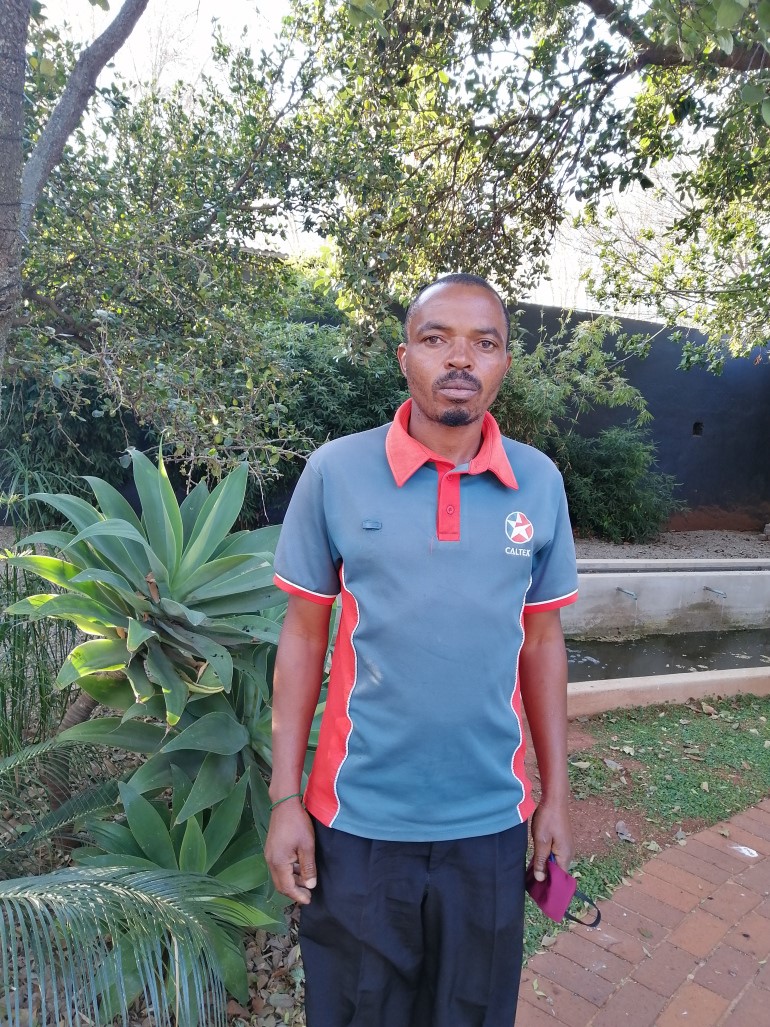
Vaekele, Mahlabela, June 2020. [Mia Swart/Al Jazeera]
The policemen’s surnames were Malan and Van der Merwe. Malan was a colonel and Van der Merwe a warrant officer in the Stocktheft Unit of the SAPS. They also beat him up in front of his wife and children. In his jacket pocket he had R1700 ($900) to buy a goat. They took his bloodied jacket and the R1700 ($900).They then took all Vaekele’s livestock and divided it among themselves.
They blindfolded him and put him in the van. They drove to Eric Phongoma’s small farm and took all 200 of his cattle. The cattle were put in different vans.
The policemen then stopped at a petrol station and consumed alcohol. At this point in the interview Vaekele struggles to contain his emotions and started crying uncontrollably.
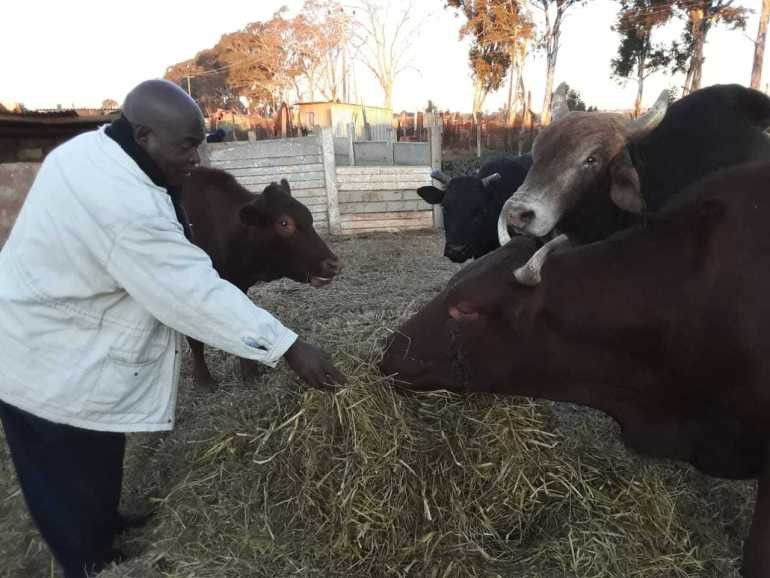
An open field
The two policemen took Vaekele to an open field with open mine holes. By this time it was dark. They all got out of the police van and left the car lights on. They lowered him into a hole and set the dogs on him. The dogs started to bite him. When he cried they said “Call Mandela. Call Malema (the head of an opposition party).”
At approximately 10 pm the two policemen started beating him up and sexually assaulting him. They then asked him to perform oral sex on them. While he was performing this act a man tried to suffocate him from behind with a tire tube. The two men then proceeded to rape him. This continued for between 30 and 40 minutes. They stopped when a few men walked by and screamed: “What are you doing to that man? If you kill him we will report you. We are taking your car registration number.”
After this they took Vaekele back to the van. They they took him to Potchefstroom police station where he spent the night in a police cell. He did not get any medical attention. The next day the same men, Malan and Van der Merwe, took him to Ventersdorp police station.
In the van to Ventersdorp Van der Merwe tried to convince Vaekele to admit that he stole the cattle. He refused. He was then taken to the police cells where he was allowed to see a doctor.
On 13 November he appeared in the Ventersdorp magistrates court and was released on R5000 bail, an unusually high amount for an indigent person. He has appeared again subsequently but the case was repeatedly postponed.
After being released Vaekele opened a case at the Dobsonville police station near his house.
The Benchmarks Foundation, a foundation with ties to his church, assisted him by referring the case to the Legal Resources Centre (LRC). Edwin Makwati lawyer at the LRC who works on cases of police brutality says: “I am not very positive about prosecutions for police involved in torture. Since 2013 there has been only one prosecution of police officer for torture and the officer was acquitted.”
Vaekele is currently seeing a psychologist . The LRC is paying for the counselling.
In spite of the fact that the Legal Resources Centre alerted the media to the case, Vaekele’s case did not receive any media attention so far. His case has been continuously postponed since November 2019.


